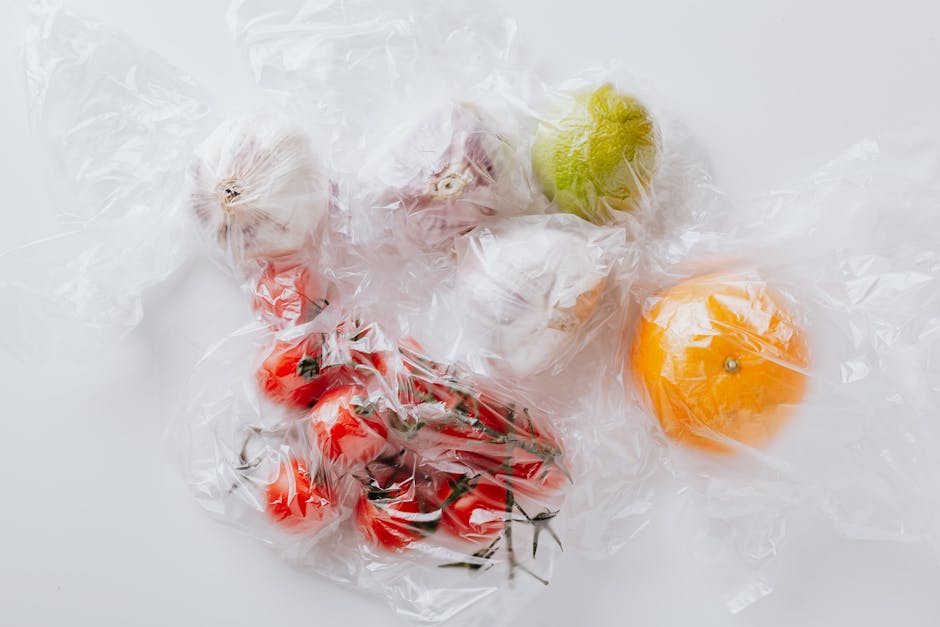How to Reduce Food Waste at Home
Did you know that about one-third of all food produced globally is wasted? That’s around 1.3 billion tons every year! Reducing food waste is not just good for the planet; it’s also good for your wallet. Let’s explore easy ways to cut back on food waste right at home.
Why Should We Care About Food Waste?

Food waste has a huge impact. When food goes to landfills, it rots and produces methane, a greenhouse gas that contributes to climate change. Plus, throwing away food means wasting the resources used to produce it, like water, energy, and labor.
According to the USDA, the average American family of four wastes about $1,500 worth of food each year. Imagine what you could do with that money! From saving cash to helping the environment, there are many reasons to take action.
How Can You Reduce Food Waste at Home?

Reducing food waste is easier than you might think. Here are some simple strategies you can start using today.
1. Plan Your Meals

Meal planning is a game-changer. By planning your meals for the week, you can buy only what you need. This cuts down on impulse purchases that often go to waste.
Start by making a list of meals you want to prepare. Check your pantry and fridge to see what you already have. This way, you avoid buying duplicate items.
- Choose recipes that share ingredients.
- Make a grocery list based on your meal plan.
- Stick to the list to avoid buying unnecessary items.
2. Store Food Properly

How you store food can make a big difference. Proper storage keeps food fresh longer and reduces spoilage. Here are some tips:
- Keep fruits and veggies in the crisper drawer. They stay fresher longer there.
- Use airtight containers for leftovers to prevent drying out.
- Label and date items in your fridge. This helps you use them before they expire.
3. Love Your Leftovers
Leftovers can be delicious! Instead of tossing them, get creative. Here are some ways to enjoy leftovers:
- Transform last nights dinner into a new lunch by adding fresh ingredients. For example, turn roasted veggies into a salad.
- Make a soup or stew. Toss in leftover meats, grains, and veggies for a hearty meal.
- Freeze portions you won’t eat right away. This way, you can enjoy them later.
4. Understand Expiration Dates
Expiration dates can be confusing. Many people throw away food once it reaches the “sell by” or “best by” dates. But these dates don’t always mean the food is bad.
“Best by” means the food is at it’s best quality but may still be safe to eat after that date. “Sell by” is for stores and indicates how long the product will be at peak freshness.
Always use your senses! If food smells fine and looks good, it’s likely still safe to consume.
5. Compost What You Can’t Eat
If you have scraps left over, consider composting. Composting is a natural way to recycle food waste into nutrient-rich soil. it’s easy to start:
- Set up a compost bin in your yard or use a composting service.
- Collect fruit and vegetable peels, coffee grounds, and eggshells.
- Avoid meat, dairy, and oils as they can attract pests.
6. Share with Friends or Neighbors
Have extra food? Share it! You can trade items with friends or neighbors. This not only helps reduce waste but also builds community. Heres how:
- Organize a potluck. Everyone brings a dish to share, which helps use up leftovers.
- Offer extra groceries on social media or local groups.
- Set up a food exchange event in your neighborhood.
7. Educate Your Family
Getting everyone involved makes a big difference. Teach your family about the importance of reducing food waste. Heres how:
- Involve kids in meal planning and preparation.
- Make a game out of using leftovers creatively.
- Discuss the impact of food waste on the environment.
What Are Some Common Misconceptions?
Many people think reducing food waste is too hard or time-consuming. In reality, small changes can lead to big results. Here are a few misconceptions:
- Myth: I can’t use food past it’s expiration date. Fact: Many foods are still safe to eat.
- Myth: Only big companies waste food. Fact: Households are major contributors to food waste.
- Myth: Composting is too complicated. Fact: Composting can be simple and beneficial.
What Are the Benefits of Reducing Food Waste?
Reducing food waste has many advantages. Here are just a few:
- Save money on groceries.
- Help the environment by reducing landfill waste.
- Support local food systems by using available resources.
Moreover, less waste means more sustainable living. You contribute to a healthier planet with every small step.
Where Can You Find More Resources?
For more information on reducing food waste, check out EPA’s Waste Reduction Guide. They offer tips and strategies to help you cut back on waste.
You can also explore local community programs that focus on food recovery and composting.
Conclusion: Take Action Today!
Now that you know how to reduce food waste, it’s time to take action. Start by planning your meals, storing food properly, and getting creative with leftovers. Share what you learn with your family and friends.
Every little step you take makes a difference. Together, we can reduce food waste and create a more sustainable future. Will you join the effort?



